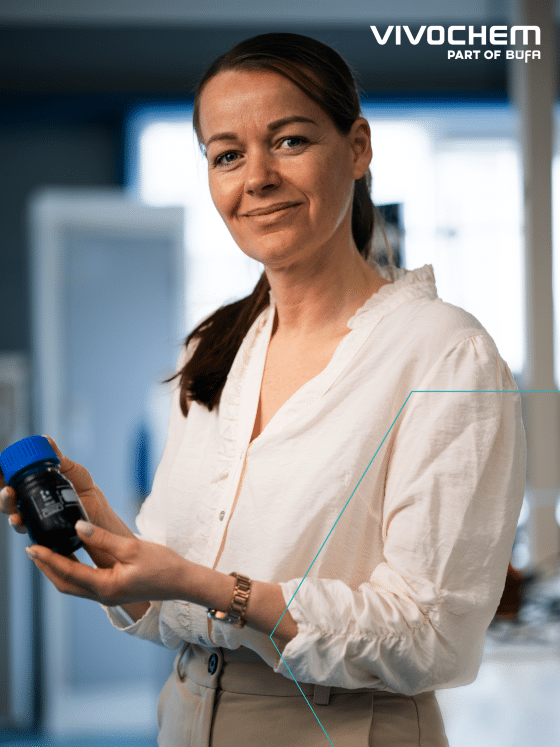
Every year, the world calls for greater awareness of the global water problem. That is why the United Nations has declared March 22nd as International World Water Day. In November 2022, Vivochem started a collaboration with Ferr-Tech, an innovative start-up that has developed a revolutionary product for cleaning wastewater.
Now, 2 years later, Ferr-Tech has grown into a scale-up with great potential in the water purification industry. We see Ferr-Tech as one of the innovations in water technology that can contribute to solving the global water problem.
On the occasion of World Water Day, we asked Co-owner of Ferr-Tech, Judith le Fèvre, a number of questions about the importance of World Water Day, the development of FerSol® and how she envisions the future of (waste) water.
What does Worldwaterday mean to you and why is it important to organize this every year?
I believe that water scarcity is one of the defining issues of the 21st century, as without water there is no life. There is only a limited amount of water available, we cannot make more of it. We need water for food production. Since water is essential for life, it is very important that we pay attention to this problem now.
Industry uses enormous amounts of water. Only 3% of all industrial wastewater in Europe is reused. The rest of the water is discharged. Building a system in your home that allows you to reuse your shower water, for example, is very good. But when you look at the amounts of water used by industry, a lot more can be achieved by focusing on this. With FerSol® we can contribute to this because we purify water and discharge it more cleanly or make it suitable for reuse.
We have the common goal at Ferr-Tech to contribute to this and solve part of this puzzle. That is why we get out of bed every day and go to work with a lot of energy! We realize that we need more innovative water technologies to contribute to this problem and we would like to be one of these solutions. We therefore think it is a good initiative that extra attention is being paid to this problem on World Water Day.
Great to hear that Ferr-Tech is committed to a sustainable future. Can you tell us more about how FerSol® came about and why this is an important innovation in the development towards cleaner wastewater?
FerSol® is “Ferrate(VI)” in liquid form. Ferrate (VI) has actually been known for decades as a very powerful and green chemical for wastewater treatment. In science you will find countless scientific articles that have shown over many years the effectiveness of Ferrate(VI) in wastewater treatment.
However, in the past it was not stable and sustainable. One of my colleagues has discovered a method for producing this in a sustainable and stable manner as the subject of his master's thesis. Because we can now produce it in a sustainable and stable manner, we can actually make a contribution to the industry.
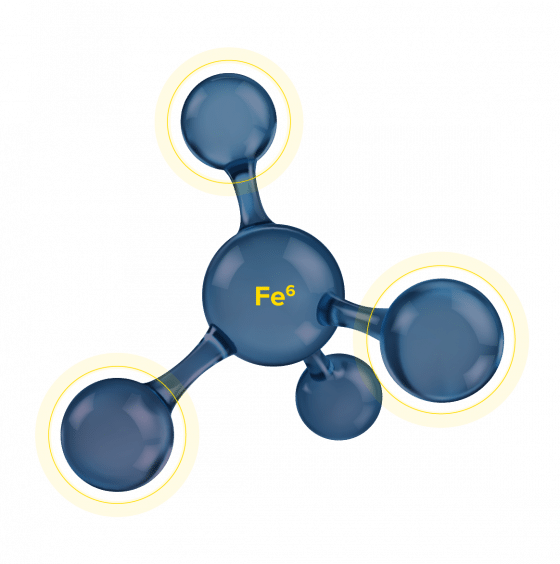
Can you tell us more about the effect of FerSol® on wastewater? Why does it work so well compared to other chemicals?
Ferrate (VI) has a very high redox potential; it acts as an oxidizing agent. Chlorine, for example, is also an oxidizer. FerSol®, on the other hand, is a green, environmentally friendly chemistry. It is also 63% stronger than chlorine. As soon as you add FerSol® to wastewater, it reacts with the wastewater and provides a very strong oxidation force, causing us to oxidize all kinds of contamination. The contamination forms into a flake and settles into a sludge. Over time, the clean water can be separated from the sludge.
''Because we can now produce it in a sustainable and stable manner, we can actually make a contribution to the industry.''
It's impressive that FerSol® is so much greener than other solutions. In which industries has FerSol® been able to achieve results so far?
FerSol® can be used in many industries. It might be a good to explain firstly: We sell FerSol® as a chemical for wastewater treatment, but also as a detergent for washing processes. For example, we are successful in Polymer Recycling Plants. We can wash plastic flakes from household waste and drastically reduce washing temperatures. In addition, much less chemistry is used in the washing process. We see the Polymer Recycling Plants as a large market where we can achieve a lot and contribute to several sustainability goals. We also achieve great results in the crate laundries. An example of crates that we can clean are meat crates. We can wash the crates at a lower temperature with less harmful chemicals.
Another market where we achieve results is greenhouse horticulture, with the cleaning of greenhouses during crop changes. We also clean waste water in the dairy industry, but also, for example, pipework, tanks and production lines using Cleaning in Place (CIP) with FerSol®. We are currently also active in the fish processing industry where we clean machines so that they suffer much less from listeria and blockages and machines also remain much cleaner by cleaning with FerSol®.
In addition, we are always developing new applications. Examples include the paper and steel industry. There are many new applications in development that are not yet ready for the market, but where we also see potential in the future to make a sustainable impact with FerSol®.
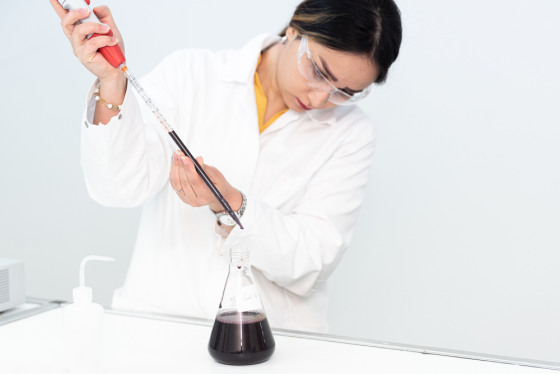
How can companies find out whether their wastewater is also suitable for FerSol?
We receive many test requests from companies in various industries that want to test FerSol®. One company wants to remove heavy metals from the water, while another company has Chemical Oxygen Demand (COD) as a problem. At yet another company it concerns vanadium in the water.
The challenge is first presented to us by the customer. We conduct a literature search and then always ask for a wastewater sample. In our own lab we investigate what results we can achieve on the specific sample with FerSol®. We are looking at whether we can offer a solution to remove that specific contamination from the water. We then share the results from the research with the customer. Sometimes the customer wants to legitimize the results by sending it to an external lab.
If the studies prove successful, we usually start with a pilot test. A next step after a successful pilot test may be that we test it on a large scale, but FerSol® can also be applied directly in the process. For us, it is often tailor-made and dependent on the customer's processes and wastewater.
Ferr-Tech has gone from Start-up to Scale-up very quickly. What have been the highlights so far?
The launch of our innovative solution is of course a milestone in itself. We then started looking for a suitable building, set up a water lab and started building our website and approaching our first 'launching customers'. I thought the process of building a company from scratch was really cool. The growth was very rapid and the highlights followed in rapid succession.
A really big highlight for us is of course winning the Chamber of Commerce innovation award. 300 companies registered for this award. It is very special that we have become the most innovative of all these companies. We are extremely proud of that!
In addition to the Chamber of Commerce innovation award, we have also won the WIS Award. This prize was extra special as it was not an audience prize, but the winner was determined by a professional jury from water technology. The fact that such a jury sees FerSol® as a promising innovation in water technology is a real highlight.
Other special moments for me are the expansion of our team, being able to bind talent to our team and the first deliveries to America. Actually there are many more highlights in a short time. I could go on and on!
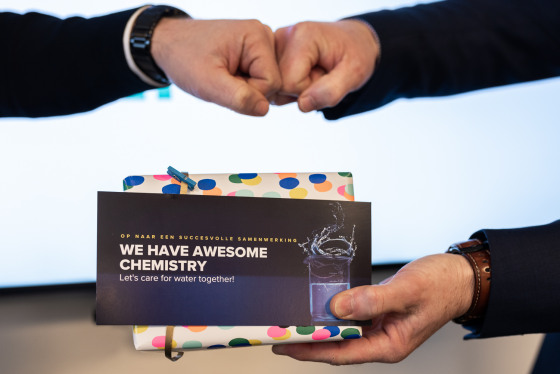
Beautiful milestones! You have a collaboration with Vivochem/BÜFA. Can you tell us more about the collaboration?
BÜFA, Vivochem's parent company, is our most important partner. Within Ferr-Tech we are responsible for the Research & Development and production of FerSol®. Vivochem and BÜFA are responsible for the warehousing, logistics and sales of our product in Europe.
We came into contact because we bought raw materials from Vivochem. At that time, we were already looking for a partner who would be willing to handle our warehousing, sales and logistics, as this is not our focus. We thought it was important that a potential partner also had a strong focus on sustainability. In addition, we looked at the quality of the logistics network and the knowledge of supplying chemicals to the industry. At Vivochem we saw all these aspects.
The match with Vivochem was immediate. We started the partnership by first making Vivochem our “Preferred Supplier”. The collaboration went so well that we entered into discussions with Vivochem's parent company, BÜFA. This led to us selling a minority share to BÜFA a year ago in November. In addition to being our partner in warehousing, distribution and sales, they now also have a share in Ferr-Tech.
''We certainly do not think that we are the only ones who can solve the water problem. But we would like to be a piece of the puzzle!''
What would your ideal world with FerSol® look like?
A major ambition of Ferr-Tech is to increase the percentage of water reuse in the industry. We believe that we can contribute to this with our innovation FerSol®. In a truly ideal world, there would no longer be any clean water scarcity at all. That is a huge challenge that we must all work on.
To contribute to this, we want to introduce FerSol® to all parts of the world. We are now focusing on Europe and the United States, but we also want to focus on the Middle East, Asia and Africa in the long term. These are also parts of the world where there are many opportunities to make a contribution. Through our internationalization we want to bring FerSol® to wider attention. We really want to bring about a mindset change in the industry. We want to help the industry discharge the water more cleanly and reuse a much larger part of the water.
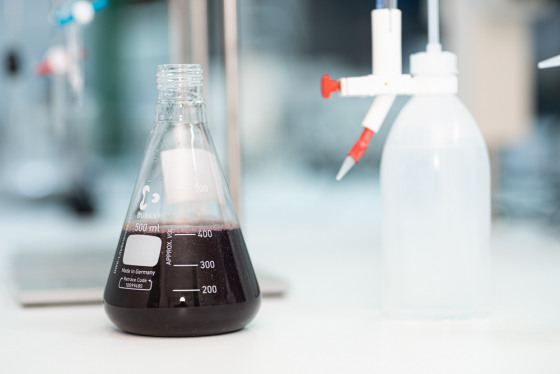
What do you think is needed to solve the water problem more quickly?
There are many great water technology companies. We would very much like to make a joint contribution to the global water problem. The water technology industry is not very competitive. For example, we work a lot with UV techniques, filtration technologies and system builders. All these technologies are needed to solve the water problem. We certainly do not think that we are the only ones who can solve the water problem. But we would like to be a piece of the puzzle!
Judith, thank you for your time today! Let us continue to work for innovative solutions within our sector. Together we can create a better future, where industry takes responsibility for preserving and protecting our precious world.
Curious about FerSol®?


